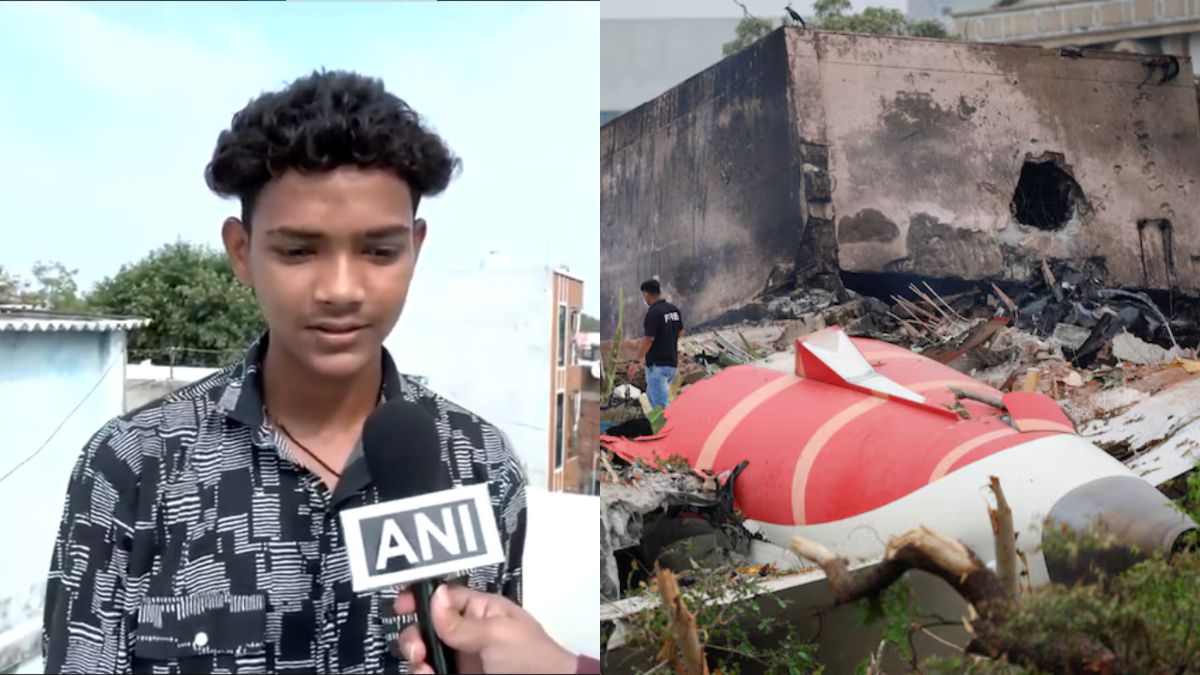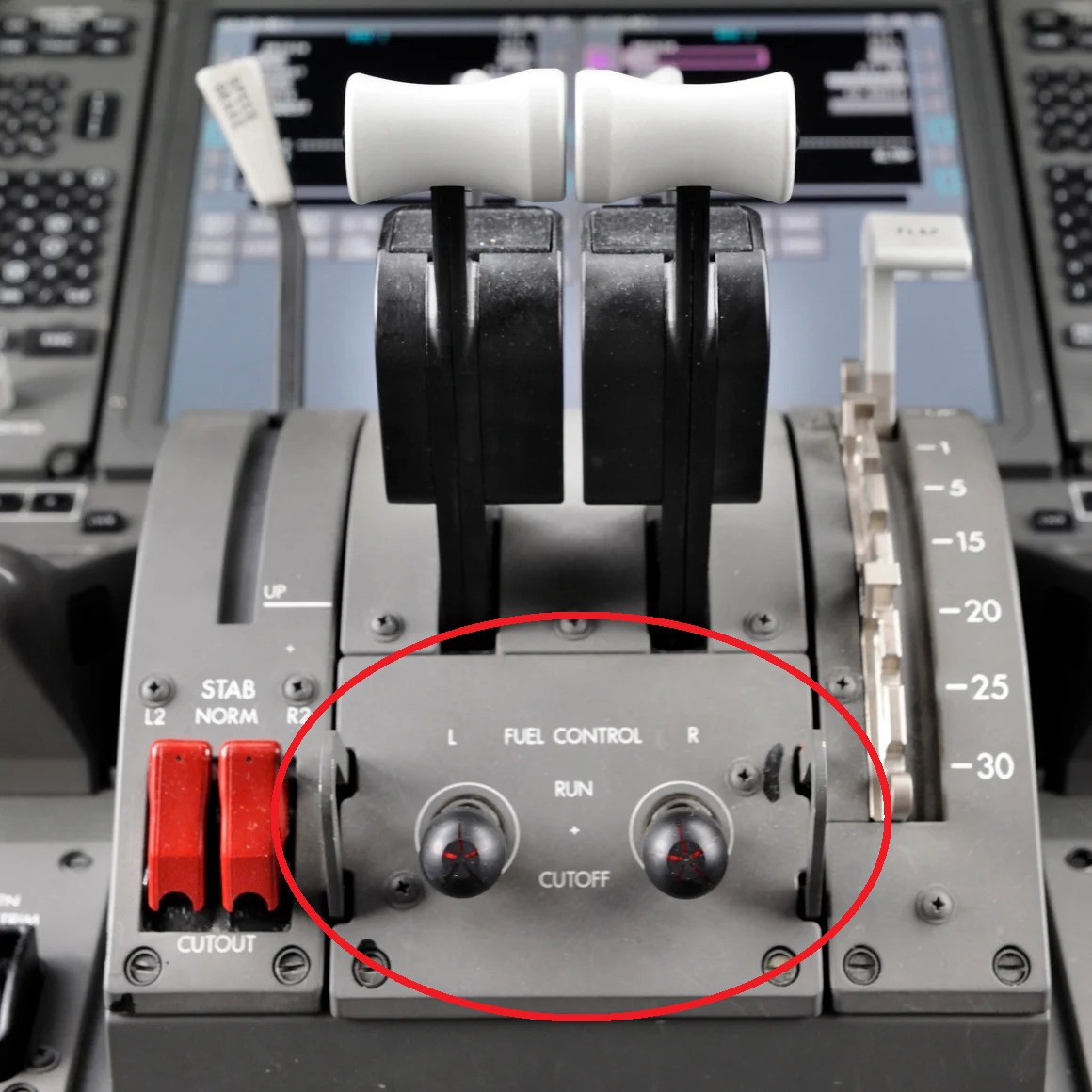On the afternoon of June 12, 2025, a tragedy unfolded in the skies above Ahmedabad, India, that would capture global attention and leave an indelible mark on the aviation world. Air India Flight AI171, a Boeing 787-8 Dreamliner bound for London Gatwick, crashed mere moments after takeoff from Sardar Vallabhbhai Patel International Airport, claiming the lives of 241 of the 242 people on board and 19 others on the ground. The catastrophic event, described as one of India’s worst aviation disasters in decades and the first fatal crash of a Boeing 787 Dreamliner globally, was inadvertently captured on video by a 17-year-old aviation enthusiast named Aryan Ansari. His footage, recorded from the terrace of a three-storey building near the airport, has since gone viral, becoming a critical piece of evidence in the ongoing investigation and a haunting testament to the fragility of life.
A Teen’s Passion for Planes
Aryan Ansari, a Class 12 student from Shamlaji taluka in Aravalli district, had arrived in Ahmedabad on June 12, 2025, to purchase textbooks for his upcoming academic year. The 17-year-old, who harbored a deep fascination with airplanes, was staying at his father’s rented home in the densely packed Laxminagar neighborhood, close to the airport. For Aryan, the proximity to Sardar Vallabhbhai Patel International Airport was a dream come true. The roar of jet engines and the sight of planes soaring overhead captivated him, and he often recorded videos to share with friends back in his village. “I came here on June 12. The plane was passing very close, so I thought of shooting a video so I could show it to my friends,” Aryan later recounted to authorities and media outlets.

On that fateful afternoon, Aryan was on the terrace of his father’s three-storey residence, his phone in hand, filming the takeoff of Air India Flight AI171. The Boeing 787-8 Dreamliner, carrying 230 passengers, 10 cabin crew members, and 2 pilots, lifted off at 1:38 p.m. local time (8:08 GMT). Aryan, enthralled by the sight of the sleek aircraft climbing into the sky, had no idea that he was about to witness a disaster that would change his life and reverberate across the globe.
The Crash That Shocked a Nation
Less than 40 seconds after takeoff, the Dreamliner, registered as VT-ANB, began to falter. According to a preliminary report released by India’s Aircraft Accident Investigation Bureau (AAIB) on July 12, 2025, the plane’s fuel control switches, critical for regulating the fuel supply to the engines, inexplicably shifted from the “RUN” to the “CUTOFF” position within a second of each other, just three seconds after the aircraft became airborne. This abrupt movement starved the engines of fuel, leading to a catastrophic loss of thrust. The plane, which had reached an altitude of approximately 650 feet, began to lose altitude rapidly.
Aryan’s video, now a pivotal piece of evidence, captured the harrowing sequence. The footage shows the Dreamliner struggling to maintain altitude, its nose pitching downward as it veered off course. The aircraft made initial contact with trees and an incineration chimney before slamming into the dining hall of a medical college hostel in a densely populated suburb, just under a nautical mile from the runway. The impact triggered a massive fireball, destroying five buildings and claiming the lives of 19 people on the ground, including students who were eating lunch at the time.
The video, described by investigators as a “crucial visual clue,” has been analyzed by crash experts, police, and aviation authorities worldwide. It shows the plane’s final moments with chilling clarity: the Dreamliner’s desperate attempt to stay airborne, the sudden descent, and the explosive crash that followed. For Aryan, who had been excitedly filming to share the wonders of aviation with his friends, the experience was nothing short of traumatic. “When the plane started descending, I thought it was going to land on the other side of the airport. Then it crashed and burst into flames right in front of my eyes. It was terrifying,” he told the Times of India.
A Traumatized Witness
The crash left Aryan deeply shaken. The 17-year-old, who had arrived in Ahmedabad just hours before the incident, was unprepared for the horror he witnessed. His family reported that the ordeal had a “devastating impact” on him, leaving him fearful and reluctant to even think about planes—a stark contrast to the aviation enthusiast who once darted out of the house at the sound of an engine overhead. Aryan’s father, a retired Army personnel who recently took up a job as a security guard with Ahmedabad Metro, accompanied him as he returned to their village in Aravalli district on June 15, 2025, to focus on his studies and recover from the psychological trauma.
Aryan’s role in the investigation extended beyond his video. On June 14, 2025, he was called in by the Ahmedabad Crime Branch to provide a statement as an eyewitness. Authorities recognized the significance of his footage, which has been shared widely across social media platforms and news outlets, amplifying its reach and impact. “I would not sit on a plane again,” Aryan told Metro News, reflecting the profound effect the incident had on his once-cherished passion for aviation.
The Investigation: Unanswered Questions
The preliminary AAIB report, released a month after the crash, has provided some insights into the disaster but left many questions unanswered. The report confirmed that both pilots, Captain Sumeet Sabharwal and First Officer Clive Kunder, were highly experienced. Sabharwal, the pilot-in-command, had over 15,638 flying hours, including 8,596 on the Boeing 787, while Kunder had 3,403 hours, with 1,128 on the Dreamliner. Both passed pre-flight breathalyzer tests and were deemed fit to operate the flight. The aircraft itself, delivered to Air India in 2014, had undergone throttle control module replacements in 2019 and 2023, with no reported fuel switch defects since.
Cockpit voice recordings revealed confusion among the pilots in the moments before the crash. One pilot was heard asking, “Why did he cut off?” indicating uncertainty about how the fuel control switches were moved to the CUTOFF position. This has deepened the mystery, as the report does not clarify whether the switches were moved intentionally, accidentally, or due to a mechanical failure. The AAIB has ruled out fuel contamination as a cause, noting that samples from the refueling tanks were “satisfactory,” and no mechanical failure has been identified in the Boeing 787-8 or its GE GEnx-1B engines.

The report has drawn criticism from the Federation of Indian Pilots, with President Charanvir Singh Randhawa calling it “vague” and questioning its lack of clarity on who made the critical decisions in the cockpit. Families of the victims have echoed this sentiment, demanding “honesty, transparency, and an unwavering commitment to uncovering the full truth.” The AAIB has stated that a comprehensive report is expected by June 12, 2026, and no safety directives have been issued for Boeing 787-8 operators or GE engine manufacturers at this stage.
A Global Impact
The crash of Air India Flight AI171 has sent shockwaves through the aviation industry. As the first fatal incident involving a Boeing 787 Dreamliner, it has raised questions about the aircraft’s systems, particularly the fuel control switch design, which is shared across Boeing 787-8 models. The U.S. Federal Aviation Administration had previously issued an advisory in 2018 regarding the potential disengagement of the fuel control switch locking feature, though no such defects were reported for the crashed aircraft. Boeing has expressed its support for Air India and the ongoing investigation, stating, “Our thoughts remain with the loved ones of the passengers and crew on board Air India Flight 171, as well as everyone affected on the ground in Ahmedabad.”
Aryan’s video has not only aided investigators but also brought the human cost of the tragedy into sharp focus. The footage, shared widely on platforms like X, has sparked public discourse about aviation safety, pilot training, and the reliability of modern aircraft. For many, the image of the Dreamliner bursting into flames is a stark reminder of the risks inherent in air travel, even in an era of advanced technology.
A Community in Mourning
The crash’s impact extended beyond the aircraft to the Ahmedabad community. The plane’s collision with the BJ Medical College hostel and surrounding buildings killed 19 people on the ground, including students whose lives were cut short in an instant. The sole survivor, a passenger named Ramesh, recounted his miraculous escape from the wreckage, saying, “I saw people dying in front of my eyes—the air hostesses and two people. I walked out of the rubble.” His story, like Aryan’s video, has become a poignant symbol of survival amid tragedy.
As Ahmedabad grapples with the aftermath, the Indian army’s engineering arm has been tasked with clearing the wreckage, and Air India has been ordered to inspect its Boeing 787-8 and 787-9 fleets as a preventive measure. The city, known for its vibrant culture and bustling airport, now bears the scars of a disaster that has left families, investigators, and a young teenager searching for answers.
A Teen’s Legacy
Aryan Ansari’s video has placed him at the center of one of India’s worst aviation disasters, transforming him from an ordinary teenager into a key figure in a global investigation. His footage, born out of a moment of innocent curiosity, has become a haunting record of loss and a vital tool for understanding what went wrong. As he returns to his studies in Aravalli, Aryan carries the weight of what he witnessed, a reminder that even the most fleeting moments can change lives forever.
The world watches as investigators continue to probe the cause of the Air India Flight AI171 crash. For now, Aryan’s video remains a powerful testament to the fragility of human endeavors and the unexpected ways in which ordinary people can shape history.
